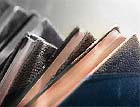Book Review: Accidents of Fortune
Hugh Massingberd savours the late Duke of Devonshire's own story, told with typical self-effacement.

Exquisite houses, the beauty of Nature, and how to get the most from your life, straight to your inbox.
You are now subscribed
Your newsletter sign-up was successful

Accidents of Fortune, Andrew Devonshire, (Michael Russell, £13.95)
Andrew Devonshire was such a delightfully modest man that he would surely have been amazed by the depth of the sorrow experienced across the country when he moved on in May. Yet truly his death diminished us all, for we could ill afford to lose this doughty champion of the countryside, imaginative and generous patron of the arts and consummately stylish natural leader.
It is at least some conso-lation that, shortly before he died, the 11th Duke of Devonshire completed this charming memoir, which unshowily reflects his extraordinary attributes ? notably his sweetness of nature, his masculine common sense and independence of mind, his self-deprecation and taste for understatement and, above all else, his irresistible sense of humour. For example, he recalls his eccentric father saying to him: 'Andy, you will find wherever there is trouble in the world, there is always a clergyman behind it.'
At Eton, young Andrew Cavendish counted himself 'lucky to last the course', as he was 'dirty, lazy and always on the borderline of failing in trials [examinations]', although he achieved 'rather questionable status' by becoming the school bookmaker. As an undergraduate at Trinity Col-lege, Cambridge, he was a regular race-goer at Newmarket. His account of his service with the Coldstream Guards during the Second World War includes a description of how he avoided being courtmartialled but, typically, omits all mention of the Military Cross he won in 1944. Once, when I asked him about this, he bumbled away about the weather in Italy at that time and the loveliness of the landscape.
It was later in 1944 that the 'accident of fortune' which reshaped Andrew's life oc-curred. His elder brother, Billy, Marquess of Hartington, was killed by a sniper's bullet in Belgium, and so Andrew became the heir to the Dukedom. Their uncle, Harold Macmillan, arranged for Andrew to be withdrawn from his battalion ? something that he 'bitterly resented'.
On inheriting the Dukedom in 1950, he was faced with a terrifying tax bill, but by shrewd and bold management he succeeded in rationalising the family estates. This included transferring Hardwick Hall to the Treasury, which passed it on to the National Trust.
When he and his wife, Debo, used to gaze at the empty Chatsworth in the early 1950s, she would say to him: 'That's a lovely house. I wonder who lives there.' They eventually moved in in 1959 and since then the place has enjoyed a glorious renaissance under 'Superpower', as the Duchess is described af-fectionately in the book. With characteristic modesty, the Duke claimed responsibility only for books and wine?'appropriately for a partially sighted teetotaller'.
Exquisite houses, the beauty of Nature, and how to get the most from your life, straight to your inbox.
The candid confessions of his struggles with 'the old enemy' (drink) are particularly poignant. Among the many delicious vignettes to be savoured are his meeting Fred Astaire, who spotted a form book in the schoolboy Andrew's pocket; the V-signs he threw at the French crowd who booed Park Top after his beloved mare failed to win at Longchamp; the heady palm wine and intimate embrace from a topless lady in Borneo that he was obliged to accept as a visiting Minister of State; and halcyon days fishing for salmon on the River Blackwater in Ireland.
How he exemplified the Countryman's Prayer read at his Memorial Service last month: 'For joy that men of good will, working together for the good of the countryside, find by their love of open air with horse and hound and rod and gun and sail. May there never be wanting a succession of fit persons to live the rural life of England at its best.' Nearly half a million people visit Chatsworth, that friendly paradise of the Peaks, every year. Every one of them should buy this beautiful book by their great benefactor.
Country Life is unlike any other magazine: the only glossy weekly on the newsstand and the only magazine that has been guest-edited by His Majesty The King not once, but twice. It is a celebration of modern rural life and all its diverse joys and pleasures — that was first published in Queen Victoria's Diamond Jubilee year. Our eclectic mixture of witty and informative content — from the most up-to-date property news and commentary and a coveted glimpse inside some of the UK's best houses and gardens, to gardening, the arts and interior design, written by experts in their field — still cannot be found in print or online, anywhere else.
